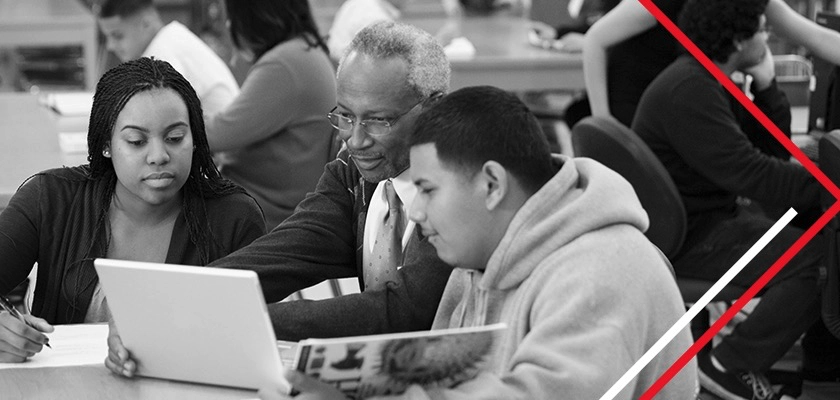Don’t Be Fooled: Tutoring is the Best Thing You Can Do
Whether you're getting help in a course or teaching others, tutoring is a great way for everyone to understand key concepts more and build confidence.

The word “tutoring” often conjures up images of students struggling to keep their head above water in a difficult class or seeking out someone to help bail them out of failing a course. In reality, there is so much more to tutoring than these stereotypes. More often than not, tutoring is a win-win situation—with both the student and the tutor benefiting from the experience. The student gains help in a class they don’t feel confident in, and the tutor gains teaching and mentoring experience while assisting others with the material they don’t quite grasp. No matter who you are when you first get on campus it’s usually a good idea to visit your tutoring center.

Reasons to Find a Tutor:
- Provides positive reinforcement.
By finding a tutor, you’ll likely get personalized and encouraging help you won’t necessarily get in the classroom. It’s easy to get discouraged in a large class, and subsequently, feel bad if you get one bad grade. By meeting with a tutor, they can work with you on any bad grades you may have gotten and demonstrate how one bad grade will not bring your overall grade down. However, you don’t need a bad grade to seek out a tutor. - Better understanding of the material.
By working with a tutor who’s been through the class before, they know how the material fits into the big picture. - More personalized interactions.
Your lecture hall professor might not know your name, but your tutor certainly will. Your tutor will also likely know your study habits and your strengths and weaknesses in the classroom. They can tailor your sessions to the things you need to study, and omit the things you’ve already mastered. - Tutoring is on your own time.
Busy week? You don’t necessarily have to meet with a tutor, especially if your class isn’t providing too much homework. Big test week for the class you’re seeking help in? You might want to meet a couple of times that week. The benefit of finding a tutor is that you can work around your schedules and find the optimal times to meet up and talk through things from class. - Study at your own pace.
Sometimes keeping up with material in class is difficult as the professor goes through things quickly. A tutor will slow the material down and make sure you understand one concept before moving on to the next. - Different perspectives on the material.
Your professor has a style of teaching, and if they’ve been teaching for many years, maybe one way of explaining material when there are misconceptions in class. If you don’t understand a certain concept in class and your professor’s explanation didn’t hit home with you, a tutor may be able to offer a different explanation or point of view that really clicks for you.
Reasons to be a Tutor: 
- Improve your communication and mentorship skills.
Pretty much every job involves you collaborating with others. This involves explaining ideas, brainstorming processes, and working with others. Sometimes people quickly understand concepts or plans, and other times they don’t. Tutoring is often a smaller version of that process. By becoming a tutor you’re sharpening your communication skills and mentorship capabilities-- both of which are high in demand in workplaces. - Helping others.
Nothing is more rewarding than the “aha!” moments that accompany any tutoring session. You know you’re doing a good deed by helping fellow students get through their most difficult classes. - Reinforce the material for yourself.
It has been said that teaching is the best way to learn the material. Once you start explaining coursework and concepts and answering questions, you begin to learn where your own misconceptions or informational gaps are. This way, you can not only reinforce the material you already know but also learn a few new things along the way as you work through problems. - Make some money.
This is a pretty obvious perk of tutoring, but this is a super-easy way for a college student to make money. Everyone is always looking to make a little extra cash. - Meet new people.
Whenever you accept a tutoring gig, you’re signing up to get to know a new person. You’ll meet fairly often and begin to get to know each other well. While sessions and conversations will often start out solely about class material, you’ll get to know each other over time. It’s never a bad thing to build relationships. - Get a different perspective on a specific class.
Classes are so different when you are sitting in class and learning versus teaching them and reinforcing material from class time. You’ll add a whole new skill to your resume, and you’ll also get to see the more “behind the scenes” atmosphere of classwork. - Talk through interesting topics you hadn’t thought of before.
The person you’re tutoring will likely have questions, and you might not be able to answer all of them. The best sessions will result in questions you never even entertained on your own. This will result in better conversations, and probably make you think a little bit deeper about the subject at hand.


